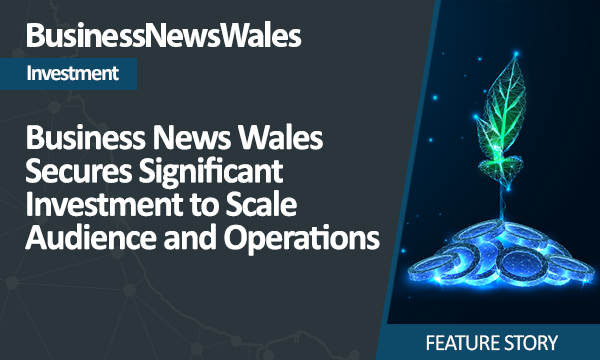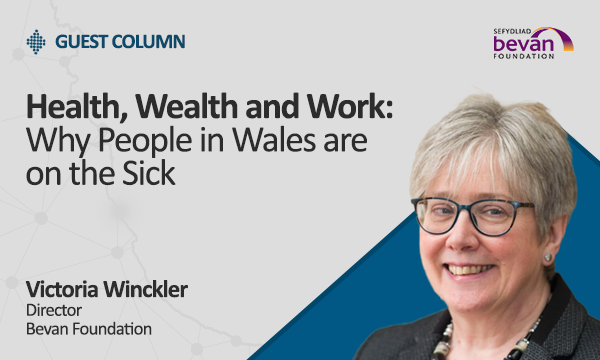
Written By:
Ian Price
Director
CBI
___________________________________________________________________________________________________________________________
With the return of the Senedd next week, the new First Minister and his Cabinet will seek to hit the ground running in their efforts to bolster the economy and support growth in Wales.
Vaughan Gething and his new team won’t have had much time to relax over Easter as they got up to speed on the minutiae of their portfolios.
From a business perspective, I welcome the First Minister’s appointment of the experienced Jeremy Miles as the Cabinet Secretary for the Economy, Energy and the Welsh Language, Ken Skates as the Cabinet Secretary for Transport and North Wales, and Huw Irranca-Davies at Climate Change and Rural Affairs.
Furthermore, I was interested to listen to Mr Skates’s comments in a radio interview last month in which he suggested the government could be open to new road building projects, including a third Menai crossing – if they were to put Wales ‘at the forefront of design’ and reflected the climate emergency.
He also cited a lack of funding as the reason the M4 relief road would not be revived by the new administration. In his response, the Secretary of State, David TC Davies suggested that it might be worth Mr Skates talking to the UK Government if funding was the only issue preventing the scheme being revived.
Tackling infrastructure problems is a key issue holding back Welsh businesses. We recently asked CBI Wales members to take part in a ‘straw poll’ to rank the effectiveness of key policy areas. Infrastructure and the labour market were both deemed ‘not attractive’ by our members in either determining or attracting investment.
They recognise the importance of tackling the climate crisis and the need to build a sustainable economy. New road building projects should be considered in tandem with efforts to improve rail infrastructure, such as through the proposed Cardiff Parkway station at St Mellons in south Wales. This rail hub would remove large numbers of cars from our roads, freeing up space for haulage vehicles and other essential services.
The nation’s potential can be achieved if we reform our economic enablers. A just transition to net zero can only be progressed if Wales reforms our planning system, makes it easier to access the grid, and a futureproof a more equitable labour market. These are all areas where government leadership is critical.
We are looking forward to engaging with the First Minister and his team on other key issues such as Green Industrial Revolution, with the CBI sharing the First Minister’s view that a just transition should continue to be a national priority mission.
While much has been done, much more can be achieved. According to February’s report by the Energy & Climate Intelligence Unit based on analysis provided by the CBI Economics and The Data City, a tech listings organisation, Wales has the fourth largest percentage of net zero firms in the UK.
Our net zero economy accounts for keeping 32,500 people in full-time employment and 4.6% of the UK’s Gross Value Added, which is worth over £3bn to the overall UK economy.
The ECIU report found that almost 40% of this Welsh GVA is due to the electricity, gas, steam and air condition supply sector, which is the highest concentration of a specific sector out of any of the regional net zero economies in the UK. It also estimated that 15% of jobs in the Welsh net zero economy are in the manufacturing sector.
The Welsh Government must continue to work with the public and private sector to support employment opportunities in areas such as Pembrokeshire, a superb geographical location for windfarms and net zero energy and a location identified as a UK net zero GVA ‘hot spot’ in the report.
Boosting the productivity of the local economy, which is driven by the 1.3m workforce, running over 200,000 firms in Wales, is critical to increasing living standards and keeping ahead of competitor nations. The CBI’s Scottish Productivity Index 2024 found that in Wales, the percentage of people not in work due to long-term sickness is 34%, behind only Northern Ireland’s figure of 34.2% in the devolved nations – and above the UK average of 25.8%. The CBI’s research shows that more than two-thirds of UK firms have been hit by labour shortages in the last year, and over a third have been unable to grow as a result.
Mr Gething and his team must all the tools they have available – and work with the UK Government on immigration – to build a skilled, productive and healthy national workforce, to unlock investment and transform the Welsh economy.
The Productivity Institute’s (TPI) Wales Scorecard highlighted the importance of investment in new technology, that boosts Welsh exports, improves SME access to finance, and strengthens Wales’ foreign direct investment offering.
Many of these issues are well known, however, the emergence of quantum computing and AI present new opportunities for business that the devolved government needs to be involved in.
Futureproofing the labour market, acknowledging the challenges faced by firms in Wales, including sluggish productivity, investing in people is a natural priority. To generate growth in our current economic condition and without increasing public sector debt, investing in the skills needed by employers, and incentivising near-market innovation, is critical.
Businesses need policies that quickly ease labour shortages, revolutionise skills development, and work within a reformed immigration system.
CBI Wales is looking forward to working with the First Minister and his new cabinet secretaries to grow the economy, and in doing so, delivering well paid jobs, sustainable public services and create a greener, fairer, economically inclusive society.













